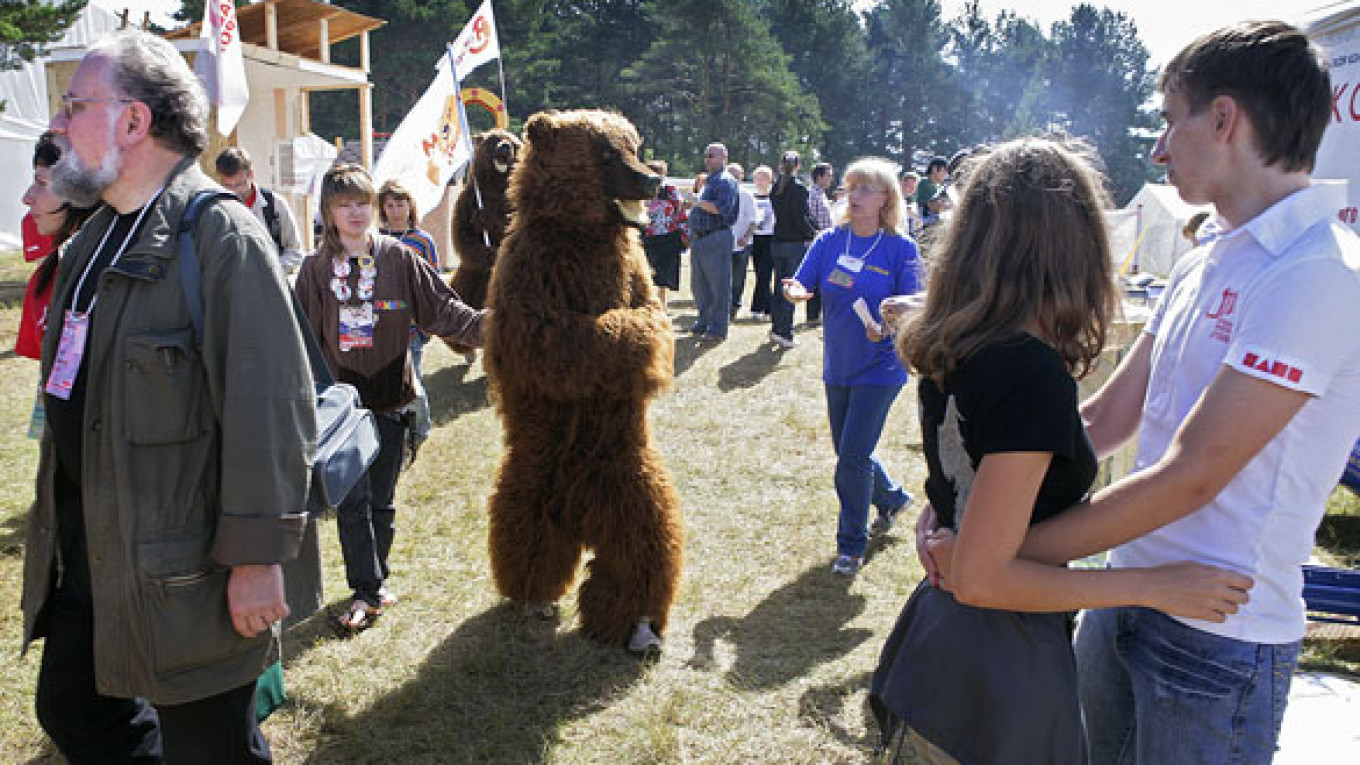The British Council said Thursday that it had turned down a proposal by the Federal Youth Agency to participate in a summer camp of pro-Kremlin youth.
The agency is headed by Vasily Yakemenko, former leader of the pro-Kremlin Nashi youth group, which harassed then-British Ambassador Anthony Brenton in 2006 and 2007 for attending a meeting of The Other Russia opposition coalition.
The British Council, the cultural arm of the British Embassy, saw two of its three Russian offices closed by Russian authorities in January 2008, and it is fighting back tax claims in Russian courts.
Foreign Minister Sergei Lavrov has linked the British Council’s problems to poor diplomatic relations between the two countries.
The British Council said it had received an invitation from the Federal Youth Agency to organize at the Seliger camp in July a so-called Future City Game, which, according to the council's web site, is a two-day activity that helps players to generate the best idea for improving quality of life in cities.?
"As we are already delivering a Future City Game in Moscow on May 29, we decided not to deliver another one," British Council's deputy head for Russia, Christian Duncumb, said in an e-mailed statement.
Yakemenko's spokeswoman Kristina Potupchik did not answer repeated calls to her cell phone.
At Nashi's national congress in mid-April, Yakemenko reiterated his support for Nashi's activities, which are overseen by Kremlin first deputy chief of staff Vladislav Surkov.
Ilya Kostunov, director of the Seliger camp, told The Moscow Times that Nashi, the former organizers and current participants of the camp, had changed their position toward Britain.
"The ambassador has been replaced, and the new ambassador doesn't make extremist statements," he said. "Besides, as I understand it, bilateral relations are relatively good now."
Nashi had accused Brenton of consorting with "extremists" by meeting with the Russian opposition.
The camp, held annually since 2005 at Lake Seliger in the Tver region, initially included training sessions to help prevent a popular uprising like Ukraine’s Orange Revolution but has gradually turned toward business.
A Message from The Moscow Times:
Dear readers,
We are facing unprecedented challenges. Russia's Prosecutor General's Office has designated The Moscow Times as an "undesirable" organization, criminalizing our work and putting our staff at risk of prosecution. This follows our earlier unjust labeling as a "foreign agent."
These actions are direct attempts to silence independent journalism in Russia. The authorities claim our work "discredits the decisions of the Russian leadership." We see things differently: we strive to provide accurate, unbiased reporting on Russia.
We, the journalists of The Moscow Times, refuse to be silenced. But to continue our work, we need your help.
Your support, no matter how small, makes a world of difference. If you can, please support us monthly starting from just $2. It's quick to set up, and every contribution makes a significant impact.
By supporting The Moscow Times, you're defending open, independent journalism in the face of repression. Thank you for standing with us.
Remind me later.


